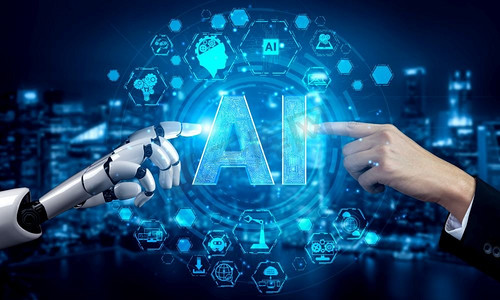The editor of Downcodes learned that SoftBank CEO Masayoshi Son made a bold prediction at the Future Investment Initiative Conference: Within ten years, we will have super artificial intelligence that is 10,000 times more powerful than the human brain. However, this goal requires astronomical investments, up to $9 trillion, and may not even be enough. This huge amount of money will be used to build a supercomputing center with a 400GW power supply and purchase 200 million chips. Son believes that if super artificial intelligence can create economic benefits of US$9 trillion per year, the initial investment will be insignificant.

Masayoshi Son mentioned that building this kind of super artificial intelligence requires about 400GW of computing center power, which exceeds the current total power supply in the United States. At the same time, it is expected that 200 million chips will be needed. The total investment in all this will reach $9 trillion. He said: "In the eyes of many people, such an investment is too huge, but I think it is still reasonable. US$9 trillion is not too big, and may even be too small."
Masayoshi Son believes that if this kind of super artificial intelligence can create about US$9 trillion in economic benefits every year, then the initial investment is actually negligible and can be gradually compensated for by benefits. He predicts four companies will make trillions in profits, and he clearly hopes he can be one of them.
However, Masayoshi Son has made some adjustments to the timetable for achieving super artificial intelligence. In June of this year, he predicted that this technology would appear within three to five years and believed that Arm, a majority stake held by SoftBank, would be one of the beneficiaries. But this time he specifically mentioned that Nvidia will also be the winner in the future. He bluntly said that Nvidia's valuation is undervalued.
Of course, Son’s views are not without challenges. Building super artificial intelligence will face huge financial and power requirements that are beyond the affordability of many countries. And what if he's wrong? After all, SoftBank has made investment mistakes in the past.
For example, SoftBank invested billions of dollars in the shared office company WeWork. However, after founder Adam Neumann's crazy statement, the value of the investment plummeted, the IPO was forced to be suspended, and Neumann eventually resigned. This makes people wonder whether SoftBank will face new investment risks again? However, Masayoshi Son seems very optimistic about this. He said that he is reserving funds to cope with the construction of super artificial intelligence in the future. As one of the world's richest men, his "saving money" plan undoubtedly makes people feel that the cost of this future plan will be huge.
Son's prediction is undoubtedly exciting, but it is also fraught with risks. The investment scale and technical challenges of US$9 trillion are unprecedented, and its success will have a profound impact on the global technology industry. The editor of Downcodes will continue to pay attention to the progress of this project.